 |
||
| urban wildlife | |
400 years and still waiting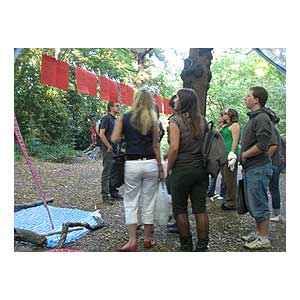 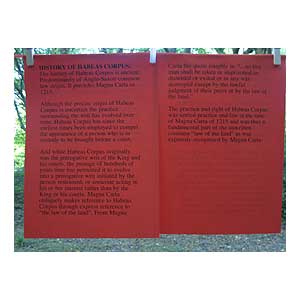 |
|
| THE DIGGERS The radical movements the Diggers and the Levellers sprung up around the English Civil War. The political and social upheaval that resulted from the English Civil War in the seventeenth century led to the development of a set of radical ideas centred around movements known as ‘Diggers’ and ‘Levellers’. The Diggers were led by William Everard who had served in the New Model Army. As the name implies, the diggers aimed to use the earth to reclaim the freedom that they felt had been lost partly through the Norman Conquest; by seizing the land and owning it ‘in common’ they would challenge what they considered to be the slavery of property. They were opposed to the use of force and believed that they could create a classless society simply through seizing land and holding it in the ‘common good’. To this end, a small group [initially 12, though rising to 50] settled on common land first at St George’s Hill and later in Cobham, Surrey and grew corn and other crops. This small group defied the landlords, the Army and the law for over a year. In addition to this, groups travelled through England attempting to rally supporters. In this they had some successes in Kent and Northamptonshire. Their main propagandist was Gerard Winstanley who produced the clearest statement of Digger ideas in ‘The Law of Freedom in a Platform’ published in 1652. This was a defence and exposition of the notion of a classless society based in secularism and radical democracy. THE LEVELLERS 1645 The Levellers whose revolutionary ideas resonated throughout the succeeding centuries, mostly notably in the demands of the Chartists in the nineteenth century. The Levellers’ ideas found most support in the ranks of the ’New Model Army’, formed by Oliver Cromwell in 1645 and were largely responsible for the defeat of the Royalist forces led by Charles I. By the end of the first civil war in 1646 Leveller ideas were particularly influential and culminated in the Putney Debates where ordinary soldiers debated revolutionary ideas with their generals; it was at this series of meetings that Leveller Colonel Thomas Rainborough argued the case for universal suffrage: “I think that the poorest he that is in England hath a life to live as the greatest he, and therefore truly, sir, I think it is clear to every man that is to live under a government ought first by his own consent to put himself under that government.” Unfortunately, this outbreak of democracy within the ranks of the army was relatively short-lived; the outbreak of the second civil war in 1647 allowed the generals to reassert their authority and Leveller influence began to wane. An attempted mutiny by Leveller soldiers was brutally suppressed in Burford, Oxfordshire in 1649; leaders were executed by Cromwell’s soldiers and others were tried for high treason. 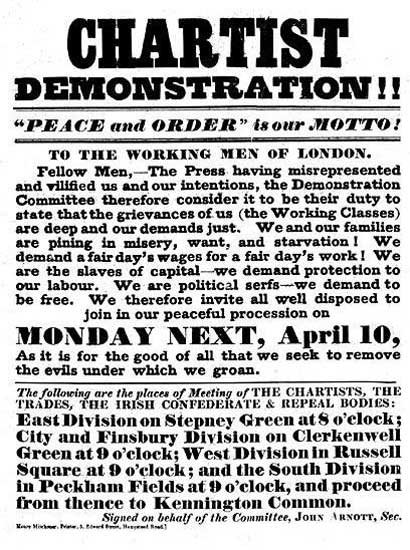 WHO WHERE THE LEVELLERS? The most prominent Levellers were John Lilburne, Richard Overton, William Walwyn, John Wildman, Edward Sexby and Colonel Thomas Rainborough. The Levellers were essentially radical idealists during English Civil War years of 1642 – 1649. Their demands could be seen as a form of early socialism that were echoed in the demands of the Chartists some two hundred years later. Their ideas came out of the social classes from which the Levellers originated; mainly skilled workers and peasants. The victory of William the Conqueror in 1066 had enabled him to impose a form of foreign [that is, Norman] domination on the people. This enabled him to reward his followers with huge swathes of land seized from the formerly ‘free men’ of England. This was particularly so in the North of England where opposition was brutally suppressed. The Levellers argued that since God had created all men as equals, the land belonged to all the people as a right. ‘THE AGREEMENT OF THE PEOPLE’. Drawn up by a committee of Levellers including John Lilburne in 1647. The Leveller demands were for: - A secular republic - Power to be vested in the people - One year Parliaments - The right to vote for all men - Recall of any or all of their MPs by their electors at any time - Abolition of the House of Lords - Democratic election of army officers - Complete religious toleration - Abolition of tithes and tolls - Justices to be elected; law courts to be local and proceedings to be in English not French! - Redistribution of seized land to the common people. There had never been anything like such a spontaneous outbreak of democracy in any English or Continental Army before this year of 1647, nor was there anything like it thereafter till Workers’ and Soldiers’ Councils met in 1917 in Russia. It is hardly surprising, given this programme of demands, that the rich and powerful felt threatened by the Levellers. This is particularly so, given that some of the Leveller demands, almost 400 years on, have still not been met! |
|
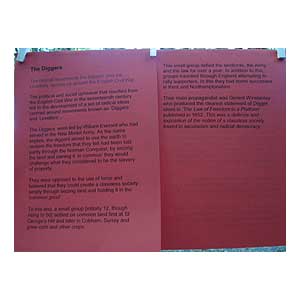 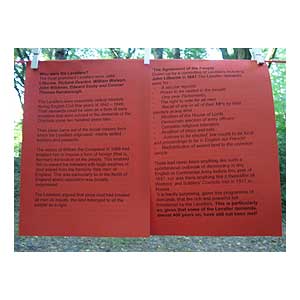 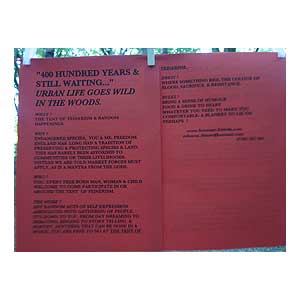 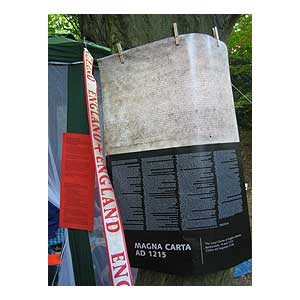 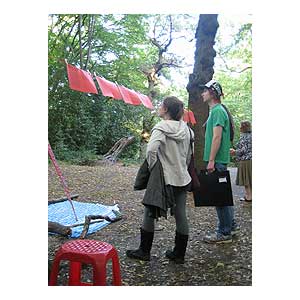 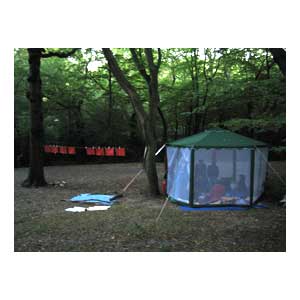 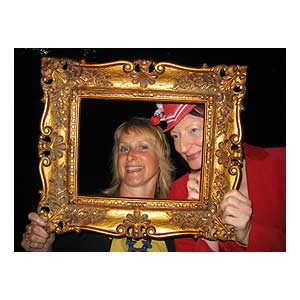 |
|